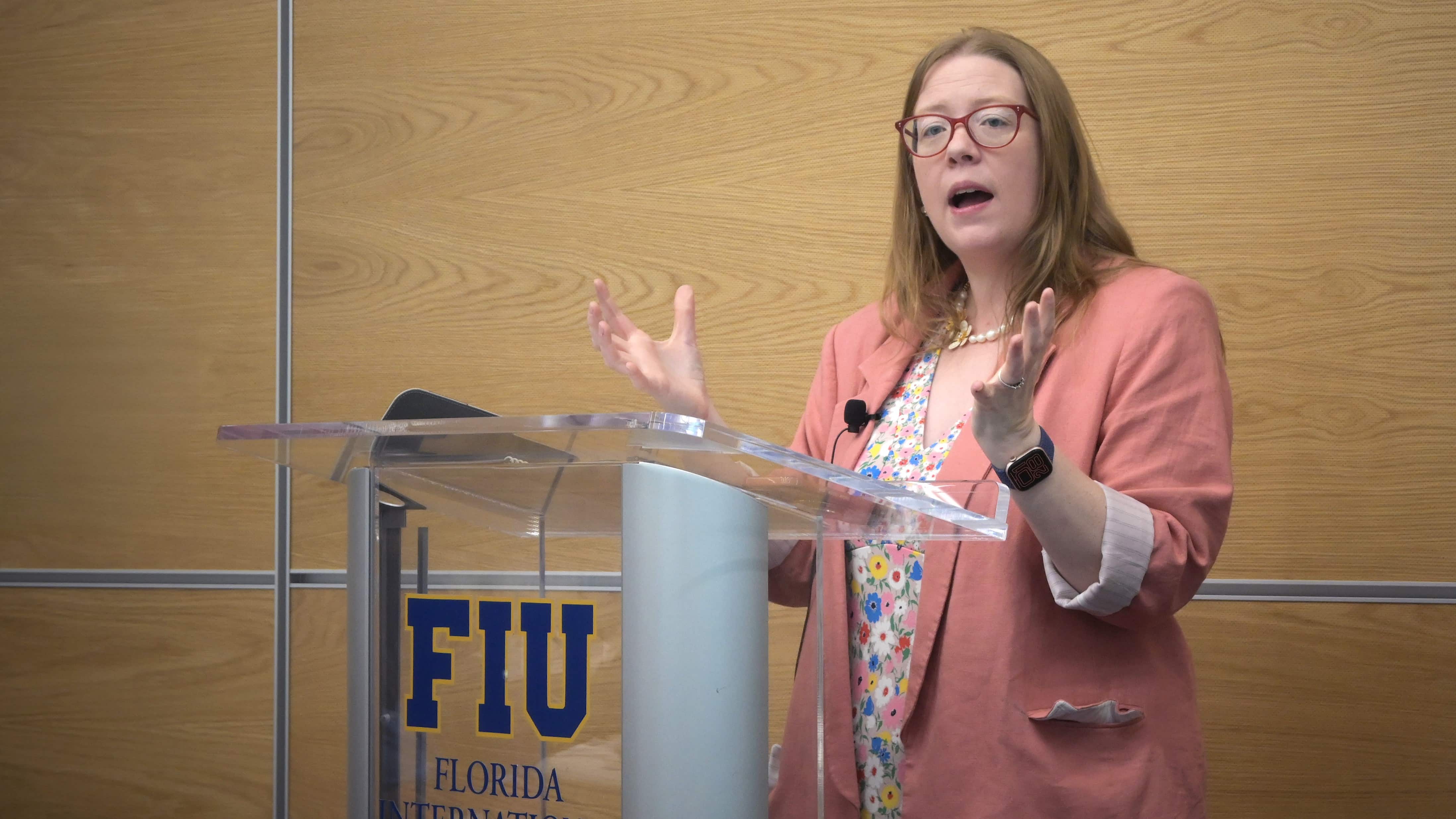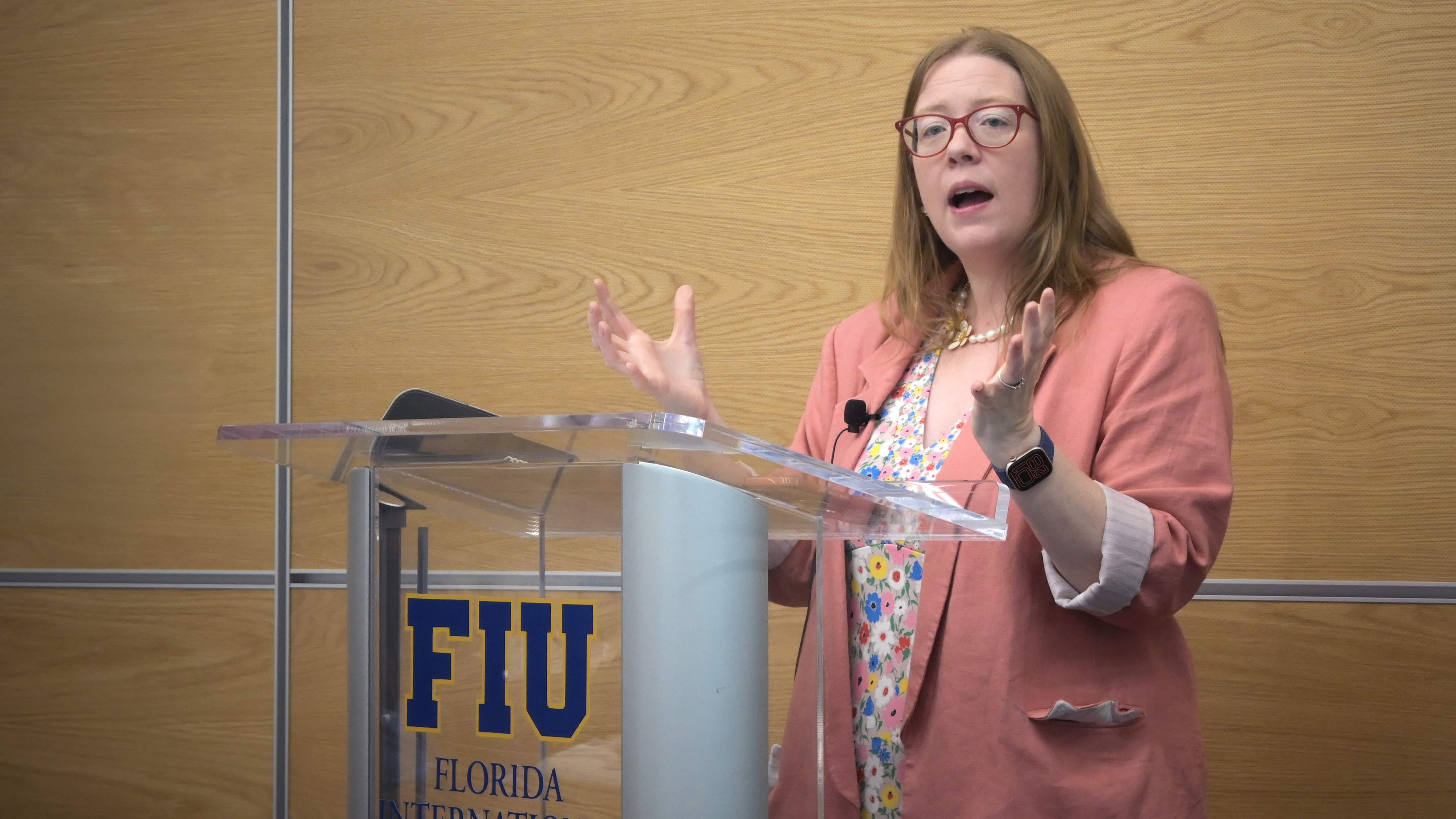Today’s international geopolitical system has undergone a shift whereby multiple leading global powers, not just a few dominant superpowers, wield military and economic might – what’s been coined as “multipolarity.” That was the core message delivered by Emma Ashford, a widely published author and senior fellow at the Stimson Center, a leading foreign affairs think tank, at the annual luncheon on February 11 held by the Steven J. Green School of International & Public Affairs honoring the Consular Corps of Miami.
Ashford asserted that policymakers should seize the new opportunities of the multipolar world instead of avoiding them. An expert in the politics of Russia, Europe and the Middle East, Ashford works on a variety of issues related to the future of U.S foreign policy, international security and the politics of global energy markets.
“The world is changing,” Ashford said. “I think the risk is very real that if the U.S. doesn't figure out how to reorient its foreign policy, reform it, refocus on the areas that really matter, then we may overreach, overextend and get ourselves either into a conflict that we cannot handle, or some other kind of crisis or decline.”
Ashford noted that multipolarity followed an era of unipolarity: a period of some 20 years of unprecedented U.S. power and influence that was created in 1991 with the collapse of the Soviet Union and the end of the Cold War. During that time, some U.S. policymakers thought the U.S. could reshape the world — a thought and time that did not persist.
“The primary cause of what's going on is power shifting in the international system,” she said. “This includes the rise of China, economically and militarily, but it is by no means limited to it. If you start to look at the metrics, what you see is a diffusion of economic and to some extent military power to a much wider variety of middle powers or second tier states.
“I think multipolarity actually offers a lot of potential for the U.S. if policymakers can seize it,” she said. “Potential to get out of the transformative mindset that we've been in for the last 30 years and move towards something, a foreign policy that is a little more sustainable, a little more realistic."
Ashford’s remarks were of special relevance to her audience – a consular corps that is one of the largest of all U.S. cities – and to the Green School, where security, foreign policy and governance are among the strategic themes in research and programming.
In addition, the school’s relationship with the consular corps provides opportunities for its students and connects the institution with nations around the world.
“Conflicts between nations and rising threats to democracy against the backdrop of accelerating change present formidable challenges,” said Green School Dean Shlomi Dinar. “All of which makes the consular corps more crucial than ever before. Your leadership and insight are integral to the diplomacy and dialogue we so desperately need. Thank you for all you do.”

